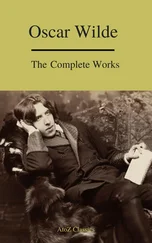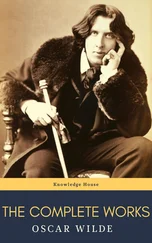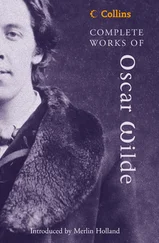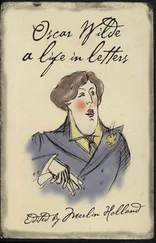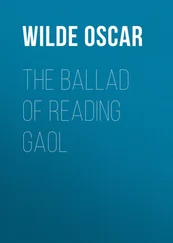Within days of his death the Pall Mall Gazette was saying ‘Mr Wilde’s gifts included supreme intellectual ability, but nothing he ever wrote had strength to endure.’ In 1910 Edmund Gosse wrote to Andre Gide: ‘Of course he was not a “great writer”…his works, taken without his life, present to a sane criticism, a mediocre figure.’ An Evening Standard article by Arnold Bennett in 1927 treats him as outmoded and his style as lacking in permanence but grudgingly concedes ‘Wilde, even if he was not a first rate writer, had given keen pleasure to simpletons such as my younger self; and he was a first rate figure.’ And as late as 1950, the Times Literary Supplement said rather condescendingly, ‘Apart from one perfect play, one memorable poem and De Profundis, Wilde left little with which, as literature, posterity need seriously concern itself.’
Yet forty-four years on, Oscar Wilde’s reputation stands higher than at any time since his theatrical triumphs of the 1890s. His works are never out of print and some of them have been rendered in to languages as diverse as Catalan and Arabic, Yiddish and Chinese. Scarcely a day passes when he is not quoted in the press or on the airwaves and the spring of 1993 saw the simultaneous West End revival of An Ideal Husband and The Importance of Being Earnest —the very same plays which were delighting packed houses on the eve of his arrest nearly a century before.
This popularity in defiance of the critics is his ultimate, unanswerable paradox, thrown down like a challenge from beyond the grave. His readers love him as much for his weakness and his fallibility as they do for his wit, his satire and his fin de siècle daring, and they remain endlessly fascinated by his outrageous behaviour. The same public which crucified him for his lack of conformity and respect for Victorian values in 1895, today holds him up as a martyr for individuality. ‘I was a man.’ he says in De Profundis, ‘who stood in symbolic relations to the art and culture of my age. I treated Art as the supreme reality, and life as a mere mode of fiction: I awoke the imagination of my century so that it created myth and legend around me: I summed up all systems in a phrase, and all existence in an epigram.’ The unabashed arrogance of that when it was published in 1905, a mere five years after his death, must have been difficult to swallow, but today we are forced to see the truth of it. Wilde’s life and his work survive side by side, in a symbiotic relationship with each other, and despite all attempts by his critics to prise them apart and subject each to scrutiny, they remain more closely entwined than ever.
How could it be otherwise? The story of his life is, in a sense, the one great play he lived out and never wrote. It has all the elements of Greek theatre so familiar to him as a classical scholar: the hero apparently in control of his destiny; the hubris; the tragic flaw; and finally the nemesis. His end, though, was not a mercifully quick death but rather a Promethean torment. Five long years of suffering followed his downfall: prison, bankruptcy, disgrace and, the ultimate indignity for one of his generosity, poverty and having to borrow money from friends. Small wonder then that public opinion refuses to allow his life and his work to be separated. To some extent, however, it has created an imbalance which threatens to play into the hands of the critics. The great majority of books written about Wilde has concentrated on the man, and passed fleetingly over the works as being merely secondary expressions of his life as an art form, a problem for which he himself is partly to blame. He has left us with that enduring vision of Wilde as the supreme showman whom nobody, at his peril, should attempt to take seriously. ‘Art,’ as he said, ‘is the only serious thing in the world. And the artist is the only person who is never serious.’ Both were themes which dominated his life.
It is this apparent lack of seriousness on which the greater part of his popular reputation rests and anecdote has done little to change it. Two of the permanent hallmarks of Wildean humour, for example, were an affected indifference to hard work as well as the effortless ease of his own genius. Asked by the critic W. E. Henley how often he went into the office during his editorship of the Woman’s World, Oscar replied, ‘I used to go three times a week for an hour a day, but I have since struck off one of the days.’ And when George Alexander asked him to cut the ‘Gribsby’ scene from The Importance of Being Earnest (restored in the present edition) Wilde could not resist remarking, ‘Do you realise, Alec, this scene you feel is superfluous cost me terrible exhausting labour and heart-rending nerve-racking strain. I assure you on my honour that it must have taken fully five minutes to write.’
Even while he was still at Oxford, Wilde was at pains to cultivate this image of creative idleness. He would read the 19th century poets rather than studying the classical texts for his degree course, or at least that was the impression he liked to give. One of his contemporaries though, David Hunter-Blair, recalled many years later, ‘Of course Wilde worked hard for the high academic honours which he achieved at Oxford. He liked to pose as a dilettante trifling with his books; but I knew of the hours of assiduous reading often into the early hours of the morning. He read surreptitiously in his small and stuffy bedroom. Books lay in apparently hopeless confusion though he knew where to lay his hands on each in every corner.’
This is the Wilde most of us are accustomed to see, the Wilde who admitted to Andre Gide ‘J’ai mis tout mon génie dans ma vie, je n’ai mis que mon talent dans mes oeuvres.’ He persuaded us of its authenticity a hundred years ago and it is still the form in which the public wishes to enjoy his company—witty, nonconformist and faintly perfumed with decadence. Under-standably, they are not qualities which persuade those who inhabit the rarefied atmosphere of pure literary criticism to grant him first division status.
But in the last thirty years, parts of the academic world have started to reassess Oscar Wilde on their own terms, digging beneath the veneer of superficiality and revealing a very different character to the one we thought we knew. All the old magic remains but it is given an added dimension by seeing him occasionally without his mask. We begin to see that, far from lounging nonchalantly through life, very early on he showed a strong determination to succeed as a writer. Put him alongside any ambitious young journalist of the 1990s and compare their paths to success. A couple of youthful literary indiscretions, a period of probation as a critic and reviewer, the editorship of a national magazine and the succès de scandale of a first novel, and the whole liberally peppered with self-publicity— plus ça change. And if Wilde did not have the power of radio and television to rely on, at least he had the lecture hall and the theatre to reach his public direct.
From the moment he left Oxford he was hard at work promoting himself. He made it his business to be seen at any social gathering of importance and at first nights, and courted the friendship of actresses in the public eye – Ellen Terry, Lillie Langtry and Sarah Bernhardt. Then, with little more than a volume of self-published poems to his credit, he was offered a lecture tour in America by Richard D’Oyly Carte to coincide with his production of Patience. Naturally he seized the opportunity. But the programme, originally planned to last four months stretched to nearly a year and it was far from being just as a sedate lecture tour for the self-appointed ‘Professor of Aesthetics’, a young dandy in velvet knee-breeches, rising languidly at mid-day to parade himself across the country as a live ‘aesthete’ for the audiences of Gilbert and Sullivan’s comic opera. In reality detailed research has shown that he faced a punishing schedule of 140 lectures in 260 days from the East to the West coast and up into Canada without the help of air travel and fast trains. He also made sure that he met Walt Whitman, Henry Longfellow and Oliver Wendell Holmes; he arranged for Vera to be staged in New York the following year; and was commissioned to write The Duchess of Padua. He had taken the calculated risk of ridicule and turned it entirely to his advantage both financially and in terms of his reputation.
Читать дальше
Конец ознакомительного отрывка
Купить книгу


